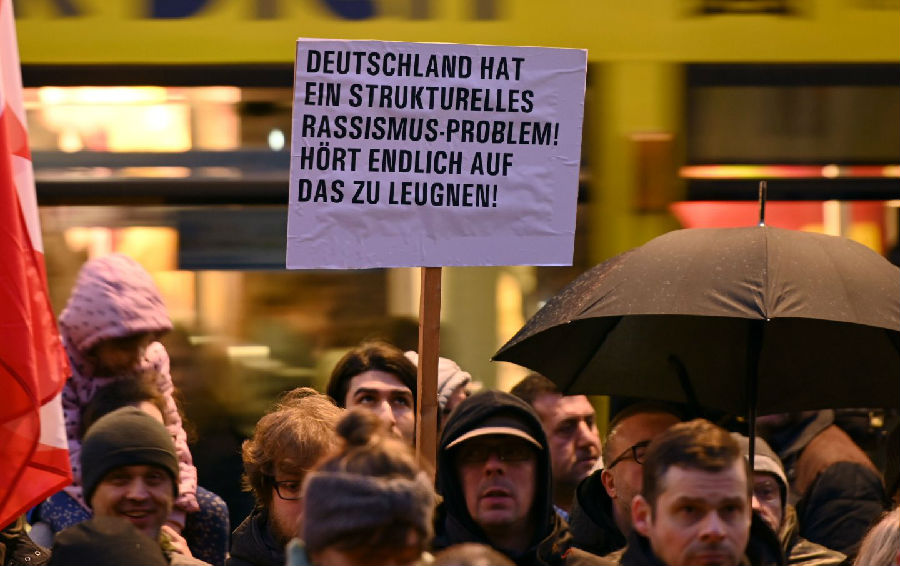What Oke would like Britain to do is use this moment to tackle the issues laid bare by George Floyd's death and dedicate substantial resources and funding to understanding why racism persists in Britain and how it needs to be addressed. She seems to be, at once, both optimistic and skeptical about the likelihood of success. "We hope this is a movement of genuine social change across our nation," Oke said.But, "we feel almost nervous to believe in what the longevity could be of the change."
奥克希望英国能够利用疫情这一时刻来解决乔治·弗洛伊德之死暴露出来的问题,并投入大量资源和资金,来理解为什么种族主义在英国持续存在,以及需要如何解决。她似乎对成功的可能性抱有乐观又怀疑的态度。奥克表示,“我们希望这是一个真正的英国社会变革运动,”但是,“我们非常紧张,因为相信变化会持续很久。”
In Germany, protesters have been fighting a similar, yet unique, battle in a country determined to draw a firm line between its present and its painful past.
德国的抗议者们一直在进行一场类似但又独特的战斗,德国决心把现在和痛苦的过去之间划清界限。

Speaking with Newsweek, Berlin-based activist Diana Arce, who was born in the U.S. before moving to Germany in 2004 in her early 20s, said she feels that the realities of racism in the country are largely swept under the rug.
在接受《新闻周刊》采访时,柏林的活动家戴安娜·阿尔塞说,她觉得这个国家的种族主义现实在很大程度上被掩盖了。她出生于美国,并在2004年自己20岁出头的时候搬到德国。
In a post-Holocaust Germany, Arce explained, "The argument is that Germany has dealt with its racist past. Like, 'we really messed up with the Holocaust, but we've learned everything now and we're good. We don't see color.'"
阿尔塞解释说,对于经历大屠杀后的德国,“争议在于德国已经处理了其过去存在的种族主义。比如说,‘大屠杀使德国变得一团糟,但我们现在学到了一切,我们很好。我们不会在意颜色的差别。’”
For years, said Arce, she has struggled to explain to white people, including fellow activists, that for Black people, racism is very much alive in the country she calls home. And by at least one measure, it's on the rise: Hate crimes in Germany more than doubled from 2014 to 2018, rising from 3,059 cases to 8,113 within five years, according to the Office for Democratic Institutions and Human Rights.
阿尔塞说,多年来,她一直在努力向白人,包括其他积极分子解释,在她称之为祖国的美国,针对黑人的种族歧视非常活跃。至少从一个标准来看,种族歧视的现象在上升:根据民主制度和人权办公室的数据,德国仇恨犯罪在2014年至2018年翻了一番多,5年内从3059起上升到8113起。
译文由可可原创,仅供学习交流使用,未经许可请勿转载。













